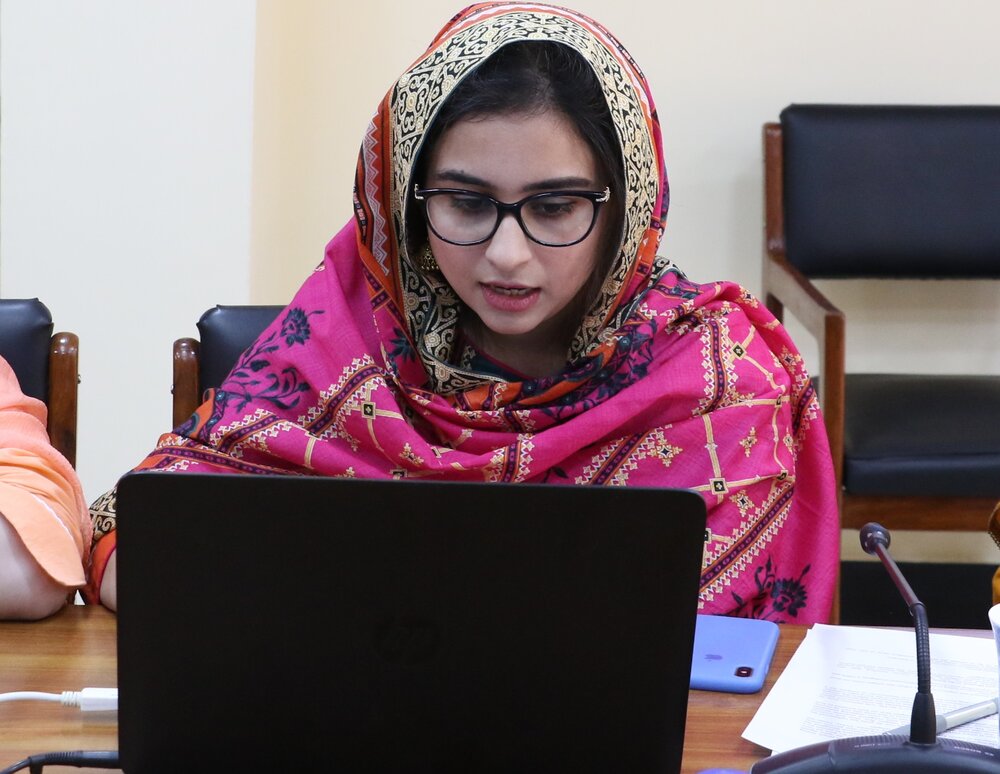There is doubt that Taliban has changed: researcher

TEHRAN - A Pakistani researcher says that despite initial optimistic views over the Taliban, there is now doubt whether the group has changed.
“At the start of their takeover in August, there was much optimism that the new Taliban regime would be different from the one in the 90s,’ Arhama Siddiqa tells the Tehran Times.
“However, now there is doubt on whether the group has changed.”
When the Taliban were in charge from 1996 to 2001, they barred women and girls from school. After the Taliban rule was toppled in late 2001, female students began attending schools and universities as opportunities blossomed. Women were able to study for careers in business and government and professions such as medicine and law.
But now, after the Taliban return to rule, there are doubts about the group’s real intention to consider women’s rights.
“Despite repeated assurances, girls in the secondary schools and above are not attending school. Moreover, women are prohibited from working, running businesses, or in some cases even going outside without being accompanied by a male family member,” Siddiqa notes.
Whereas the Taliban know they need international cooperation, which means they have to adopt a moderate outlook, they do not signal a fundamental change in their views. “At the moment, the Taliban’s promises that its members will take a less hardline stance on social issues and respect women’s rights are being met with some skepticism,” the Pakistani researcher emphasizes.
Following is the text of the interview:
Given recent explosions, how do you see repercussions of U.S. withdrawal from Afghanistan? Apparently, we should expect new waves of violence.
The situation in Afghanistan is really uncertain and tricky at the moment. The system is on the verge of collapse. For instance, many doctors have fled the country, so there is a shortage of doctors and even medicine. The violence will only get worse from here onwards unless something drastic is done to thwart it.
Afghanistan’s neighbors have been very active In terms of providing humanitarian aid. While supporters of the Taliban repeatedly claim that the new generation of the organization has changed, many experts are pessimistic about a fundamental change in the Taliban’s behavior due to some violence cases in Afghanistan. What is your comment?
At the start of their takeover in August, there was much optimism that the new Taliban regime would be different from the one in the 90s. However, now there is doubt on whether the group has actually changed. For instance, despite repeated assurances, girls in secondary schools and above are not attending school. Moreover, women are prohibited from working, running businesses, or in some cases even going outside without being accompanied by a male family member. So even though the Taliban know that if they want to gain international legitimacy, they have to adopt a moderate outlook, they do not seem to be following this trajectory. At the moment, the Taliban’s promises that its members will take a less hardline stance on social issues and respect women’s rights are being met with some skepticism.
Many critics accuse Pakistan of sponsoring the Taliban and other extremist groups in Afghanistan? To what extent is this claim rightful?
Pakistan has always been an advocate of an Afghan-led and Afghan-owned peace process. The fact that Pakistan has not recognized the Taliban regime as yet shows that Pakistan is following events with caution and not taking any blatant sides.
Do you predict any coordination among Afghanistan’s neighboring countries to restore stability?
In terms of providing humanitarian aid, Afghanistan’s neighboring countries have been very active. In the near future, I predict they may actively take part in counter-terrorism measures since it is in their interests that extremist groups not use Afghan soil against them. Also, we may soon see a consolidated, concerted effort on providing humanitarian aid and refugee influx.
How can Islamabad manage what is going on around its borders from Afghanistan to India and China-Taiwan disputes?
First and foremost, Islamabad should keep its borders on high alert and refrain from passing any uncoordinated statements with regard to the mentioned dispute. A border patrol on each front must be active to ensure that no smuggling or human trafficking takes place.
Leave a Comment